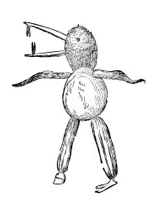16 May 1951
Dear Rousselot,
It's obvious that what matters is what you invent, that is what you can put of yourself into your manner of saying what you say. This, I think, is what is called genius. For if I am against the picturesque which consists of taking a train, a boat, a plane, a rocket, going to a bar here or there—it's all the same, according to the great travelers without imagination—it's because this style of the picturesque doesn't apply to me. I have caught the train, the boat, I have traveled in Italy, in Spain, in England, in Greece. For the great pleasure of my eyes and the great profit of my experience. But truly, I never had any idea of trying to make use of these vague displacements. The true adventurer is the one who invents his adventures. For me, to find myself in a port is to enjoy everything my senses and my mind can feel and judge in a port. That's all. I don't make up romantic images. I once wrote—the only adventure, the one which lasts, namely life, for heaven's sake, the secret inexpressible life, life at its simplest even, this burning life of a prisoner with his two eyes always ardently fixed on the blind. Have you noticed the phrase—I no longer know in which poem—"we will never escape the fate of being prisoners." It's things like that which people should find in what I've written and comment on. I know it's not easy and would take a lot of time. Have you also noticed that in speaking of a man, in trying to get inside the real drama, you would have to be able to say what goes on inside him at night, for instance, when with the lights out he's there alone between the sheets. That is to say—nothing, the greatest wordless despair, in that nothingness of life as soon as you sound it yourself without using witnesses. Dear Jean Rousselot, you're going to have to try and see clearly through the murk, even for the part you've agreed to take on. An obscure life, without anything dazzling, without any brilliant colors, a terrible difficulty to grasp the real, and an even greater difficulty perhaps to be content with certain appearances, with the disconcerting lacework that in the world of the arts so many myth-mongers, myth-spinners weave for themselves and others. On the other hand, of course, there is intimate reverie as refuge. But knowing quite well that it's only a dream, a refuge. I don't know of any dreamer who has as sharp a sense of inexorable reality as myself; I even think few realists (without scruples, it's in this way that they're myth-mongers) have this deadly sense of reality as much as me. . . .
. . . I came into the world on the 11th of September 1889 at midday, not far from the station and the college of the town you know—you remember the whistling of trains during the night?—I will tell you how I began to breathe the air of this new milieu, rather quickly, pushed out by a movement of terror on my mother's part; a terror which my sister—three and a half—caused her at that moment. . . .
—translated from the French by Peter Boyle
To read the rest of these letters, please click here to purchase JUBILAT 3



